
Mobile app may offer hope in times of distress
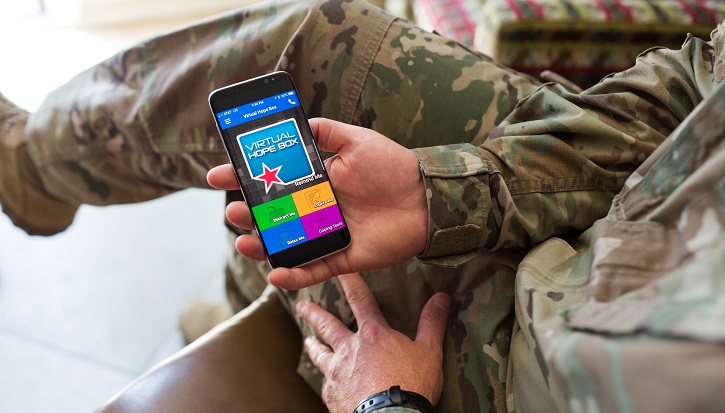
A user navigates to Virtual Hope Box, a Defense Health Agency mobile app that aims to decrease the experience of distress by facilitating healthy coping and emotion regulation skills. (Image courtesy of DHA)
In the face of a global pandemic, individuals are connecting even more so through their smartphones. A mobile app on their device may offer a way for the military community to cope with the changes to their daily lives brought on by COVID-19 – and in the future the challenges of military life.
“Right now we’re all experiencing the uncertainty of COVID-19; we’re stuck in the house; we’re facing so many constraints that we’re not used to. So, we may be feeling a lot of distress,” said Kelly Blasko, counseling psychologist and mHealth clinical integration lead at DHA’s Connected Health branch. “Some of the distress you might feel may cause an increase in anxiety, changes in mood, and negative thinking.”
Virtual Hope Box is one mobile app solution that may help individuals cope. The award-winning app provides users with an opportunity to manage distress in a personalized and immediately accessible way. The app, in conjunction with mental health professional guidance, can help maintain one’s health and wellbeing.
“Virtual Hope Box is a mobile tool that may help you develop positive coping skills,” Blasko explained.
The app is modeled after the concept of a traditional hope box, where one might collect physical items that are meaningful and would bring up positive thoughts.
“You can’t carry a box everywhere; with Virtual Hope Box, the same resources are at your fingertips, virtually on your phone,” Blasko said.
Patients can use the VHB to store a variety of rich multimedia content that they find personally supportive in times of need.
“And in times of social distancing, Virtual Hope Box offers a way to maintain connection to the important things in one’s life, without interacting physically with others,” she added.
Virtual Hope Box was designed to decrease the experience of distress by facilitating healthy coping and emotion regulation skills.
The app is divided into sections – Remind Me, Distract Me, Inspire Me, Relax Me, Coping Tools and Support Contacts. Through these sections, it provides:
- Positive reminders
- Distractions
- Inspirational messages
- Relaxation through controlled breathing
- Guided meditation
- Positive activity planner
One distinguishing difference between a traditional hope box and the virtual version, is Virtual Hope Box includes a function that allows direct dialing to 911, the Military Crisis Line, or user pre-programmed contacts. Blasko emphasized this feature underscores the importance of reaching out for help when you need it from your support network or professionals.
“My call to action to you is to download the app, upload items that are meaningful to you, program contact information so that it is ready if you need to call right away, and try it out,” Blasko said.
Virtual Hope Box is available through app stores for various smart phones. It has been downloaded more than 680,000 times, with about 11,000 new downloads per month.
In clinical trials, veterans who used Virtual Hope Box reported significantly greater ability to cope with unpleasant emotions and thoughts compared with a control group, and found the app to be more helpful than written educational materials.
The DHA maintains additional mobile apps that may serve as good self-care and health resources during the current crisis and beyond:
- Breathe2Relax: Provides instruction on diaphragmatic “belly” breathing, which might help lower stress and reduce anxiety. Graphics, animation, narration, and videos lead users through several breathing exercises.
- T2 Mood Tracker: Tracks a user’s range of emotions and behaviors to show how their life is affected by thoughts, moods, changes at home or at work, and events. Helps identify trends and triggers, and info can be shared with a health care provider.
To learn more about mobile health options, visit www.health/mil/mhealth.
Uniformed Services University Adds COVID 19 Training to Curriculum
Article
4/16/2020
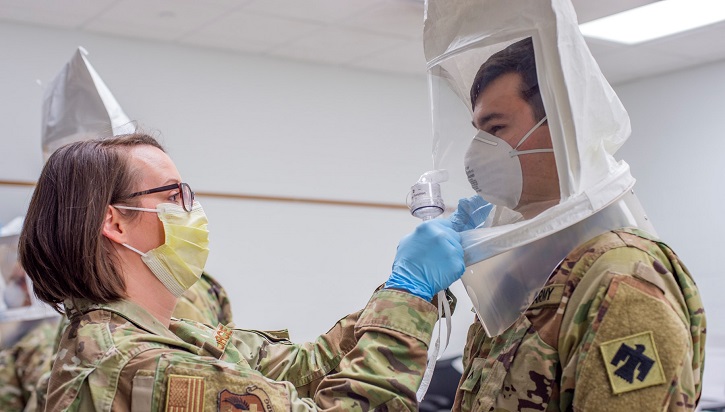
All of the university’s medical school Class of 2020 students completed the training prior to graduating, and the rest of the medical students have until April 15 to finish.
COVID-19 and its impact on healthcare in Europe
Article
4/15/2020
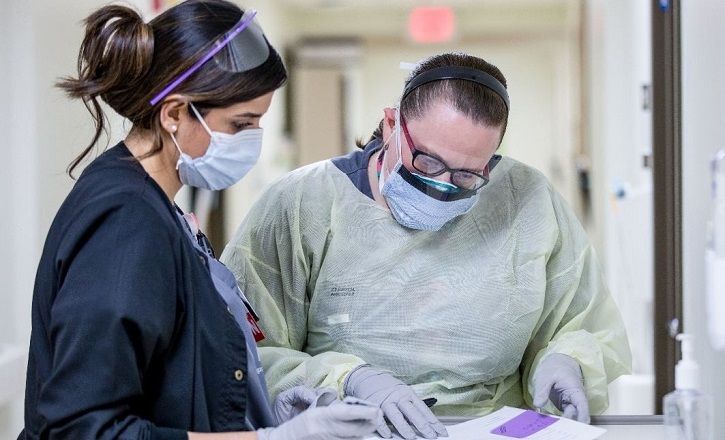
MTF staffs are working hard to meet the needs of beneficiaries across Europe
Memorandum on Providing Federal Support for Governors' Use of the National Guard to Respond to COVID-19
Publication
4/14/2020
Military medical training continues during COVID-19
Article
4/14/2020
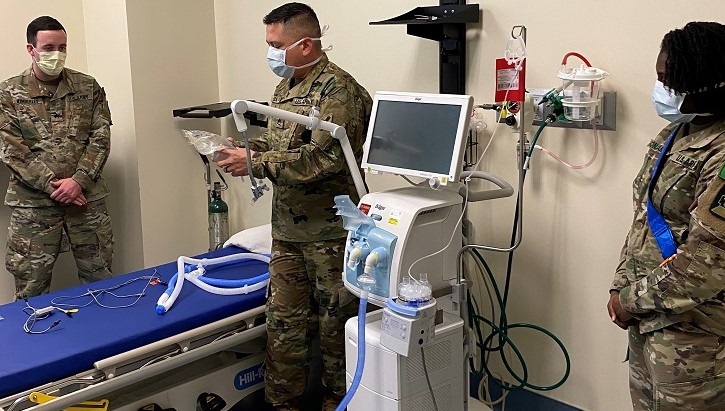
METC’s mission - to train the world's finest medics, corpsmen and technicians - is vital to force readiness and the nation.
Benefits Eligibility for 32 USC 502(f) Missions
Publication
4/14/2020
A chart outlining the various Benefits Eligibility for 32 USC 502(f) Missions
Implementation Guidance for Presidential Memorandum, "Providing Federal Support for Governor's Use of the National Guard to Respond to COVID-19 ," Dated April 7, 2020
Publication
4/14/2020
DoD COVID-19 Practice Management Guide Version 2
Technical Document
4/14/2020
This COVID-19 Practice Management Guide has been rapidly and thoughtfully developed by a multi-specialty group of 60 subject matter experts from across the Department of Defense Military Health System. The intent of this publication is to provide clinicians and military medical treatment facilities (MTFs) with best practices based on latest evidence to optimize DoD response to the current COVID-19 pandemic. This Practice Management Guideline consolidates resources and optimizes the management of patients requiring clinical care during the global COVID-19 pandemic.
Military hospital dials in virtual healthcare to combat COVID-19
Article
4/13/2020
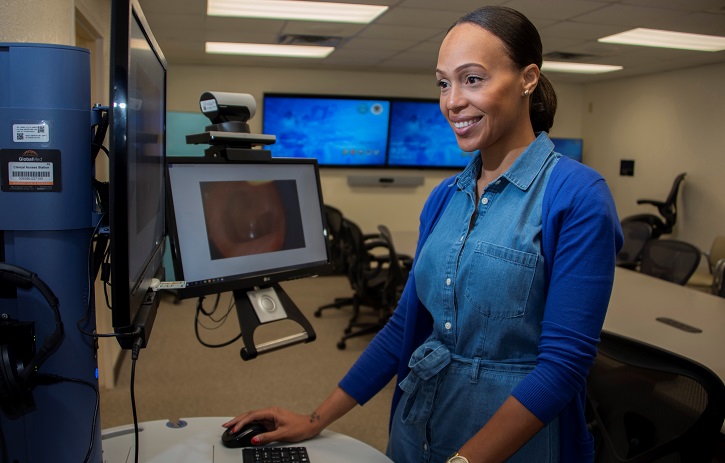
At BAMC, traditional face-to-face appointments for most routine care have increasingly shifted to virtual care to ensure social distancing as well as patient and provider safety.
Stay Home Slide Show
Video
4/10/2020
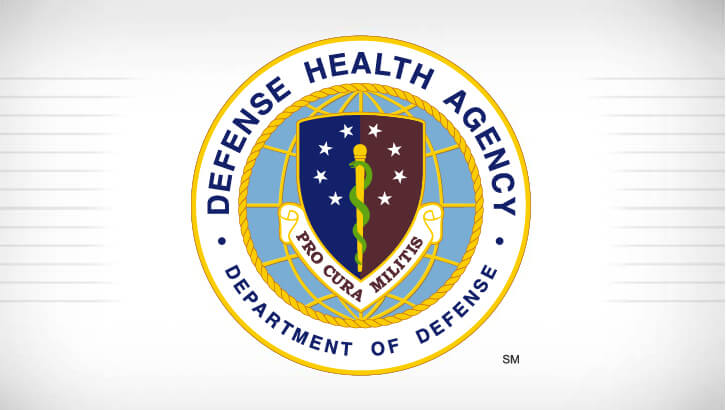
Slide show of photos from BAMC's #stayhome campaign
inTransition Teams Up with the Veterans Crisis Line to Support Service Members in Crisis
Article
4/10/2020
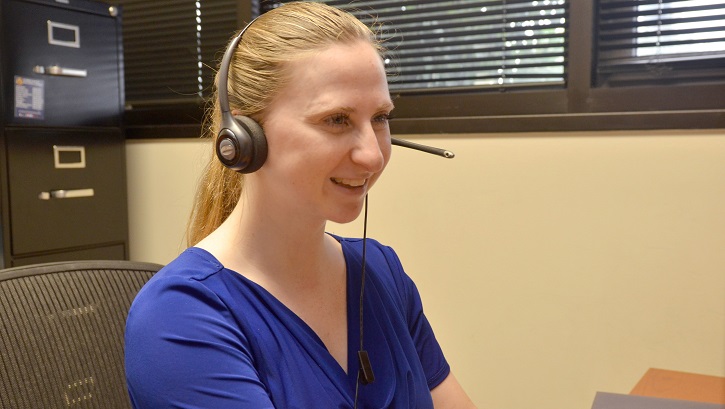
In response to an increased volume of calls to the Veterans Crisis Line (VCL) since the outbreak of the novel coronavirus (COVID-19), inTransition is partnering with the VCL to coordinate certain types of care for active duty service members.
Army Corps Launches Alternate Care Facility Construction
Article
4/10/2020
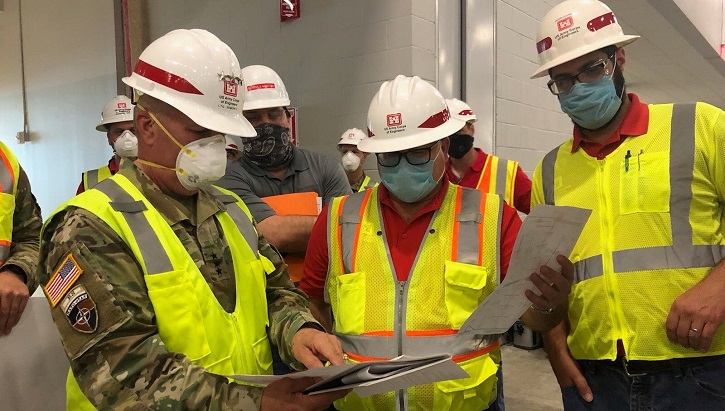
Building health care facilities isn’t a new task for USACE, which has years of experience designing and building hospitals and clinics for the military health system.
Delegation of Authority for Reserve Component Activation Authorities during the Coronavirus Disease 2019 Response
Publication
4/10/2020
This delegation assigns to the Service Secretaries the authority to activate Reserve Component personnel and to modify their orders as needed to employ and retain them for the COVID-19 response.
Guardsmen Remain Adaptable in Face of Coronavirus
Article
4/9/2020
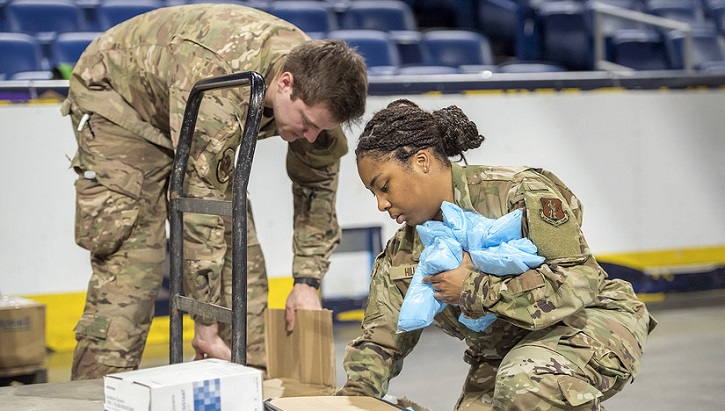
More than 28,000 National Guardsmen are helping to fight the coronavirus across America
Authorization to Employ Military Medical Capabilities to Treat COVID-19 Patients
Publication
4/8/2020
Effective immediately, the Commander, U.S Northern Command, is authorized, as he deems necessary and appropriate, to employ military medical capabilities under his operational control to treat patients who have contracted coronavirus disease 2019 (COVID-19).
Defense Health Official Urges Personnel, Families to Wear Face Masks
Article
4/8/2020
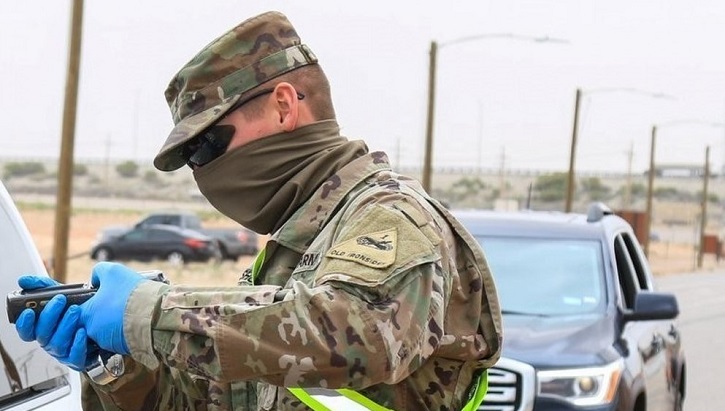
The face-covering mask can be fashioned from simple household items.





















.png)












No hay comentarios:
Publicar un comentario